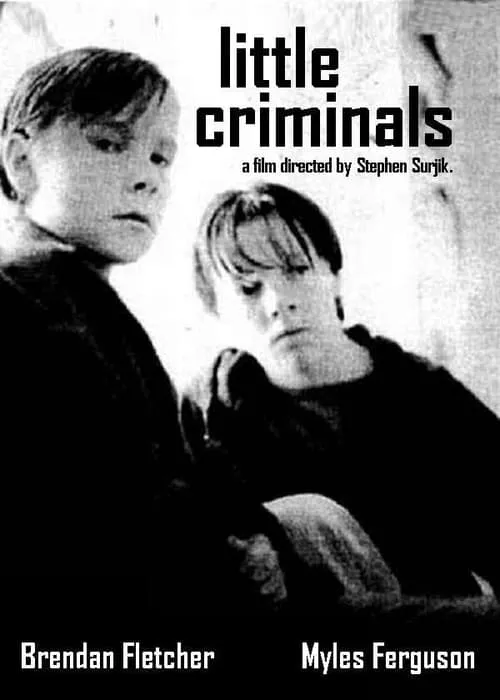Little Criminals

Trama
Little Criminals is a poignant coming-of-age story that delves into the complexities of adolescence and the challenges faced by children who grow up in harsh, crime-ridden environments. The film follows the journey of Des, an eleven-year-old boy who has grown up surrounded by the harsh realities of street life. With a lack of guidance and a flawed home life, Des and his friends have learned to survive by any means necessary, engaging in acts of vandalism, theft, and violence. Des' life is marked by a sense of desperation and a feeling of being trapped. He is stuck between childhood and adulthood, torn between the desire to break free from the cycles of poverty and crime and the pressure to conform to the norms of society. Des' actions are a cry for help, a way of coping with the trauma and abuse he has experienced in his short life. His mantra, "I'm not twelve yet," becomes a twisted joke, as he believes that he is above the law until he reaches the age of twelve. Des' friendship with Cory is at the heart of the film. Cory is a kindred spirit, another troubled youth who has found a sense of belonging and acceptance in Des' company. Together, they wreak havoc on the city, pushing the boundaries of what is acceptable and what is not. Their antics are a mix of recklessness and mischief, a testament to the power of youth and the desire to break free from the rules. However, Des' life takes a drastic turn when he ends up at a assessment centre for troubled youths. The centre is a place of confinement, where kids like Des are "rehabilitated" through a combination of therapy, education, and discipline. Des' arrival at the centre marks a turning point in his life, as he begins to confront the consequences of his actions and the damage he has caused. The centre is a world away from Des' streetwise existence, a place where rules and discipline are enforced, and kids are taught to conform. The regime is strict, with a focus on rehabilitation and reeducation. Des is forced to adapt to a new environment, one that challenges his perceptions of himself and his place in the world. As Des navigates the centre's routines and rules, he begins to reveal a different facet of his personality. He starts to open up to the centre's staff, sharing his stories and struggles with a sense of vulnerability and trust. Des' interactions with the centre's workers are a complex dance, as he oscillates between resistance and submission. Through Des' story, the film raises important questions about the causes and consequences of youth violence. Why do kids like Des turn to crime and violence? What drives them to engage in destructive behavior? The film offers a nuanced and compassionate exploration of these issues, avoiding simplistic answers and stereotypes. One of the key themes of Little Criminals is the search for identity and belonging. Des is a product of his environment, shaped by the streets and the people around him. He is caught in a cycle of poverty and crime, with limited options and a lack of role models. The centre offers Des a chance to break free from these cycles, to explore new possibilities and identities. As Des navigates the centre's regime, he begins to forge new connections and relationships. He starts to see himself in a different light, as a person capable of change and growth. The centre becomes a place of transformation, where Des can shed his old skin and emerge as a new person. In the end, Des' journey is a complex and multifaceted one, marked by triumphs and setbacks. The film raises important questions about the nature of childhood, crime, and violence, offering a nuanced and compassionate exploration of the human condition. Through Des' story, we are reminded that kids like him are not just statistics or stereotypes, but complex, multifaceted individuals, deserving of empathy and understanding.
Reseñas
Recomendaciones


